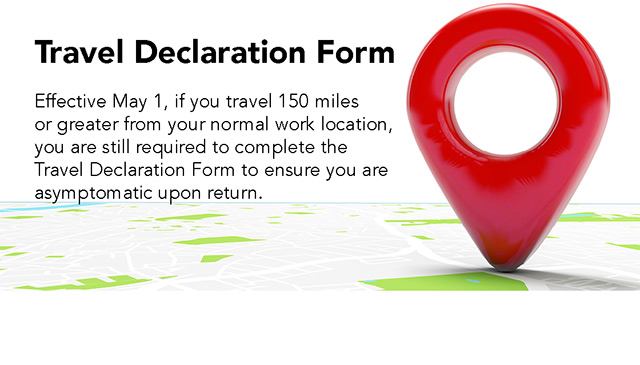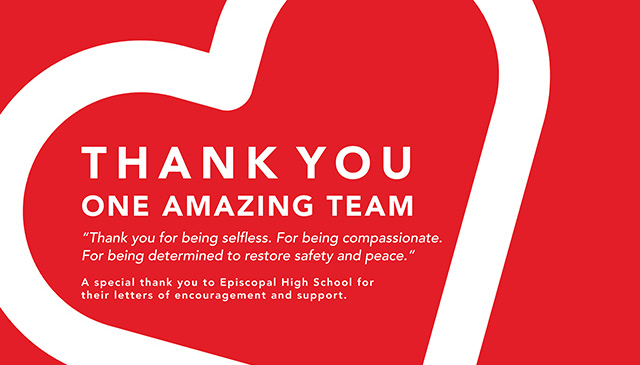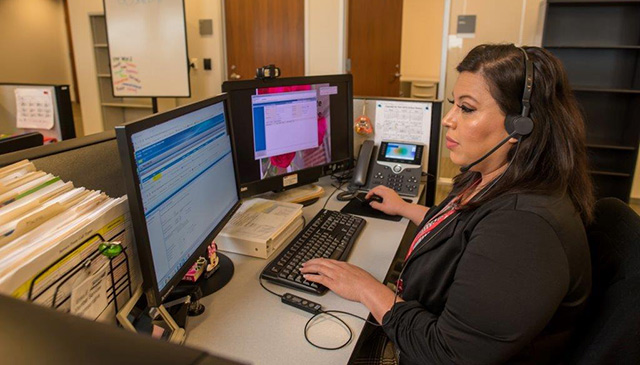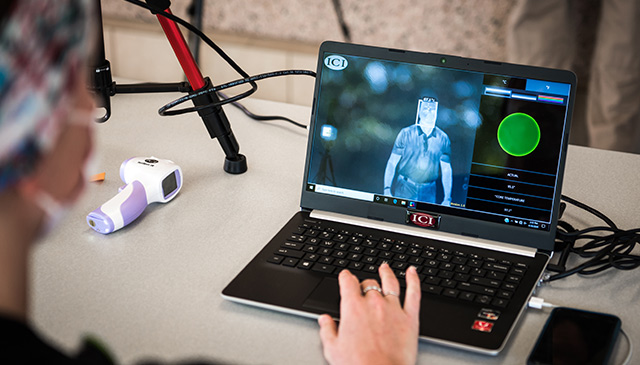April 23, 2020
If you feel you meet testing criteria, as described in a variety of sources, and are otherwise ambulatory and not seriously ill, you may obtain testing from a variety of sources.
This is a very fluid situation right now, filled with ambiguity, and current guidelines at these testing sites are designed to preserve resources, while allowing testing of ill or at-risk individuals.
All sites will screen people for symptoms and risk factors in accordance with current CDC and health department guidance. Symptoms are fever, cough, and shortness of breath. They also consider epidemiologic factors, such as recent travel, contact with anyone diagnosed or suspected of having COVID19, age, underlying conditions.
Some sites only test healthcare providers, and healthcare professionals will often be prioritized at some of these sites (and typically do not need to meet the epidemiologic criteria noted above). Asymptomatic individuals with no risk factors usually will NOT be screened at these testing sites.
If you have insurance, bring your insurance proof, and the test itself is at no cost to you. Without insurance some sites will require cash ($150 to $200). Some sites require pre-screening by phone and an identification number or proof of medical provider identification. So be prepared before you go to one of the testing sites.
Virtual care sites, an option for obtaining medical advice, will require a small fee of $20.
Who can be tested at community testing sites?
At this time testing is still restricted to symptomatic individuals, with priority of at-risk individuals with underlying health conditions, or known exposure to COVID-19. Some sites will accept an order from your own physician. Some sites will also test children, and some will only test adults.
Option 1:
Your own primary care provider.
This is always a good first step. If you have a primary care physician, contact their office about which testing site they prefer you to use. Some PCPs may evaluate their patients in office, collect a specimen, and send to a commercial lab such as Quest or LabCorp. Others will offer video virtual care and telemedicine visits, then refer you to one of the drive-through options listed below.
Option 2:
Baylor College of Medicine McNair Campus
If you are BCM employee and seen by BCM OHP because of at-work exposure (no matter where you work, including TCH) or seen as a patient of a BCM clinic doctor, this is an option. The BCM Incident Command Center emails will have direct links to navigate the “exposure grid” instructions.
BCM McNair campus drive-through testing site. Testing can be done after you are seen by a BCM physician in the BCM clinic – or evaluated by OHP BCM if you are exposed from work – with an order in EPIC from a BCM physician or OHP.
Option 3:
Texas Children’s Hospital
Texas Children’s employees and Baylor faculty who are medical staff are being assessed for risk associated with COVID-19. Subsequent COVID-19 testing is based on symptom criteria. Texas Children’s is not able to support testing on demand for asymptomatic individuals.
If you meet the screening criteria, you will be placed into a queue and contacted later for the next steps. Testing supply is variable and is evaluated on a daily basis. Contact your TCH supervisor for further instructions if you work at TCH and feel you meet testing criteria. Medical Staff Services will approve medical staff for testing, if testing criteria are met. You will be directed to the Meyer Building at 1919 S. Braeswood if you qualify for testing. This is a drive-through testing site.
Texas Children’s Hospital TCP outpatients also may be processed for sample collection at the Meyer Building at 1919 S. Braeswood, with proper symptoms screening, and a doctor order in EPIC. The sample will then be run at TCH per the outpatient agreements. This is a drive-through site.
Texas Children’s Hospital MWT specialty clinic outpatients and all inpatients will have samples collected in clinic or in hospital, according to PPE procedures outlined, and testing will be run in the TCH laboratory, and resulted in EPIC, twice daily, 7 days a week
Option 4:
Harris County Health Department on-line screening
Go to www.readyharris.org or www.checkforcorona.com. On these health department websites you will be guided through a three-step process:
- Complete on-line screening questions. You will either be reassured you do not need testing, or proceed to step 2.
- If you are at risk, you will receive a phone consultation.
- If you meet criteria for testing, you will be referred to a drive-through community testing facility site, and assigned an identification number.
Also, bring proof that you are a physician or other healthcare professional, and proof of insurance. Healthcare workers are prioritized, but the general public also will be tested if they are high risk, exposed to COVID-19 or have symptoms of COVID-19.
Option 5: (same sites as option 4 but screen by phone instead of online)
Health Department triage and testing by telephone
This is an initiative between the health departments and the Texas Medical Center Hospitals (Houston Methodist, Memorial Hermann, CHI St. Luke’s, and HCS Houston HealthCare).
- Call the Houston Health Department at 832-393-4330 (9 am to 4 pm) if you reside in Houston city limits.
- Call the Harris County Health Department at 832-927-7575 (9 am to 4 pm) if you reside outside the city of Houston, but inside Harris County.
You will be screened on the phone by a health department representative, given an identification number, and instructions on where to go to be tested. The venue for testing will be a drive-through testing center. This is now open for first responders and medical personnel, as well as people in the general public with high-risk conditions, symptoms, or known exposures. In addition to the identification number you will be required to show identification/proof of your medical doctor or first responder status (if appropriate), and proof of insurance. Insurance will be billed. No payment will be accepted.
Option 6:
United Memorial Medical Center (UMMC)
510 Tidwell
Houston 77091
Mon – Fri, 8 am to 8 pm
A doctor’s order is required. There is a website www.ummcscreening.com for registration and pre-test eligibility screening. This is a free, non-FEMA drive-through testing site. They test both adults and children.
Option 7.
Northeast Houston at Forest Brook Middle School
7525 Tidwell Road
Houston 77017
877-470-7787
This is a non-FEMA drive-through testing center.
Option 8:
Legacy Community Health Clinics
832-548-5000
At this time it appears these clinics will test individuals > 18 years of age only – no children. They are drive-through testing site. A doctor’s order will be required.
Legacy Community Health Clinic (Montrose)
1415 California St.
Houston 77006
Mon – Fri, 8 am to 5 pm , Sat, 9 am to 3 pm
They will process insurance with a sliding scale payment if there is no insurance.
Other Legacy Community Health Clinics
Legacy Clinic Southwest
6441 High Star Dr.
Houston 77074
Mon – Fri, 8 am to 5 pm, Sat, 8 am to 5 pm
Legacy Clinic Fifth Ward
3811 Lyons Ave
Houston 77020
Mon – Fri, 8 am to 5 pm
Legacy Clinic Beaumont
450 N 11th St
Beaumont TX 77702
Mon – Fri, 8 am to 5 pm
Option 9
HISD Butler Stadium
13755 Main St
Houston 77035
832-927-7575
Will test first responders, and medical and health care providers > 65 year olds with fever, and general public with symptoms or exposures. If you have symptoms and want a COVID-19 test, first call the Houston or Harris County Health Department or get screened on their websites as outlined in options 4 and 5 above. This is a drive-through, free FEMA testing site. Police officers are on site.
Option 10
Delmar Stadium
2020 Mangum Road
Houston 77092
832-393-4221
Will test first responders, and medical and health care providers > 65 year olds with fever, and general public with symptoms or exposures. If you have symptoms and want a COVID-19 test, first call the Houston or Harris County Health Department or get screened on their websites as outlined in options 4 and 5 above. This is a drive-through, free FEMA testing site. Police officers are on site.
Option 11
M.O. Campbell Center
1865 Aldine Bender Road
Houston 77032
Option 12
My Family Doctor Run by MediCorp PA Private Doctor Group
6430 Hillcroft St.
Houston 77081
This is a drive-through, non-FEMA private testing site. Doctors and nurses on site will evaluate for testing criteria. The test is free after insurance verification. Bring $25 in case, which will be given back to you once they verify insurance. The cost is $150 to $200 (cash only) without insurance. They will collect the sample and send samples to commercial reference laboratory, such as Quest Diagnostics and Labcorp Mon – Friday, 9 am to 4 pm.
https://www.myfamilydoctorhouston.com/
Option 13
Oakbend Medical Center
4911 Sandhill Drive
Sugar Land 77479
281-238-7870
This is a drive-through, non-FEMA private testing site. Patients to be tested must complete a telehealth visit by calling, and will be assessed for risk factors, and if appropriate, the testing will be ordered. The test is $100 without insurance, or a $40 co-pay with insurance.
www.oakbendmedcenter.org/covid-19/
Option 14
Smart Financial Centre at Sugar Land
18111 Lexington Blvd
Sugar Land 77479
877-470-7787
This is a free, non-FEMA drive-through testing site. Testing is conducted by United Memorial Medical Center at this location. Individuals who meet criteria, including symptoms, will be tested here.
www.sugarlandtx.gov/1969/COVID-19-Testing#testing
Option 15.
Pearland sites if you live in or near Pearland
Insurance will be billed.
Baylor St Luke’s Pearland
11713 Shadow Creek Pkwy
Pearland 77584
Pearland Medical Center HCA Pearland
Shadow Creek Pkwy
Pearland 77584
Memorial Hermann Pearland Hospital
16100 South Fwy
Pearland 77584
Houston Methodist Emergency Care Center Pearland
11525 Broadway St.
Pearland 77584
713-363-8020
Next Level Urgent Care of Pearland
8325 Broadway St., Suite 220
Pearland 77581
This site will only test high-risk patients.
Option 16.
Goose Creek ISD – Stalworth
2102 East Archer Road
Baytown 77521
This is a free, drive-through FEMA testing site run in collaboration with Harris County Health Department. Samples will be sent to Labcorp or Quest Diagnostics commercial reference laboratories. This site appears to be for medical personnel, healthcare workers and first responders who are showing COVID-19 symptoms. Information on testing for the general public is forthcoming.
Option 17
Next Level Urgent Care Locations
This is a privately run urgent care system. They will test individuals with symptoms, suspected exposure, as well as other high-risk groups. They will require a telemedicine virtual visit with one of their healthcare providers, or an in-person clinic visit to be seen in a drive-through line. They will bill insurance with a co-pay. Or the cost is $200 without insurance.
www.nextlevelurgentcare.com
Option 18
Houston Methodist Hospital System
Virtual urgent care provider 24/7
A board-certified physician will assist you via a video conference to determine if you require testing and advise you on where you should go. They also have a Virtual Urgent Care app. Download MyMethodist app, and register or visit the website. Cost appears to start at $20 for the virtual urgent care visit. This is for patients over 2 years of age.
www.houstonmethodist.org/virtual-urgent-care/
Option 19
MD Anderson Diagnostic Imaging
ONLY FOR MD ANDERSON PATIENTS AND EMPLOYEES
6602 Mapleridge St.
Houston 77081
Option 20
Memorial Hermann System
Their COVID-19 website says if you are symptomatic with fever, cough, shortness of breath and/or meet travel criteria and/or have had significant exposure, they encourage telemedicine and virtual care options via their eVisit and eVisit video services 24/7. The cost is $25 per visit.
www.memorialhermann.org/virtual-care/evisit/
Option 21:
Telehealth, telemedicine and virtual visits
These are apps that can be set up and used almost immediately. There is usually a small fee. Check your health insurance provider for which telehealth benefit is included in your coverage plan.
- Teladoc
- AmWell
- Doctor on Demand
- eVisit and eVisit Video
- MyMethodist






